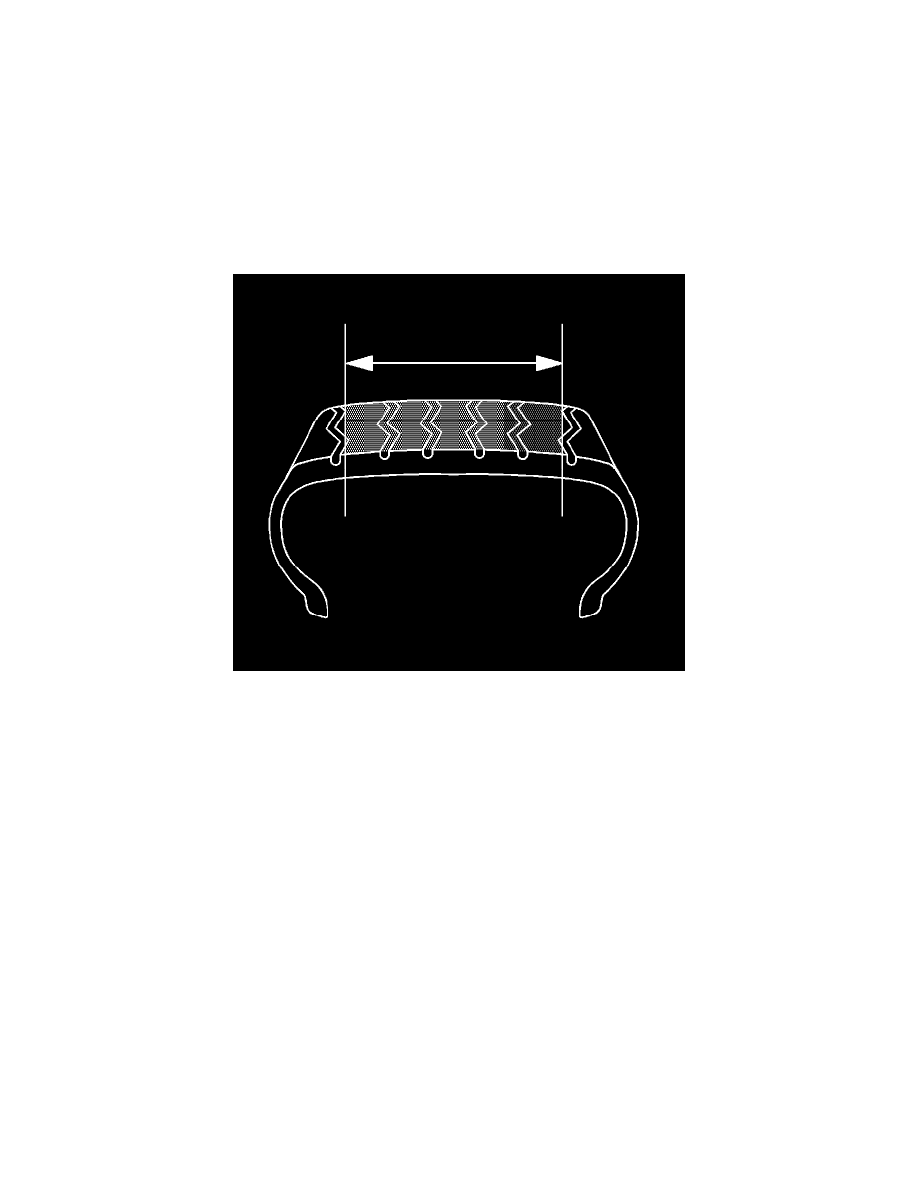Equinox AWD V6-3.4L (2008)

Tires: Procedures
Tire Repair
Tire Repair
Caution:
*
Tire changing can be dangerous and should be done by trained professionals using proper tools and procedures. Always read and understand any
manufacturer's warnings contained in their customers literature or molded into the tire sidewall.
*
Serious eye and ear injury may result from not wearing adequate eye and ear protection while repairing tires.
*
NEVER inflate beyond 275 kPa (40 pounds) pressure to seat beads.
*
NEVER stand, lean or reach over the assembly during inflation.
Repairable area on a radial tire.
Important:
*
NEVER repair tires worn to the tread indicators 1.59 mm (2/32 in) remaining depth.
*
NEVER repair tires with a tread puncture larger than 6.35 mm (1/4 in).
*
NEVER substitute an inner tube for a permissible or non-permissible repair.
*
NEVER perform an outside-in tire repair (plug only, on the wheel).
*
Every tire must be removed from the wheel for proper inspection and repair.
*
Regardless of the type of repair used, the repair must seal the inner liner and fill the injury.
*
Consult with repair material supplier/manufacturer for repair unit application procedures and repair tools/repair material
recommendations.
Three basic steps for tire puncture repair:
1. Remove the tire from the wheel for inspection and repair.
2. Fill the injury (puncture) to keep moisture out.
3. Seal the inner liner with a repair unit to prevent air loss.
External Inspection
1. Prior to demounting, inspect the tire surface, the valve and the wheel for the source of the leak by using a water and soap solution. Mark the
